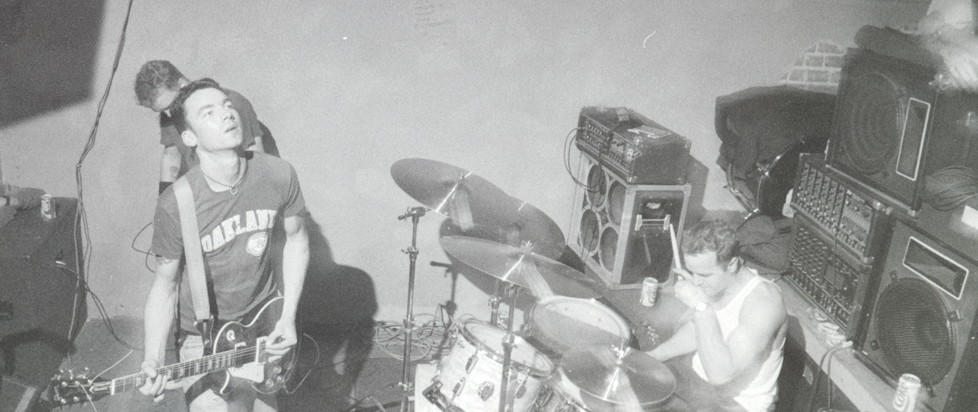
Breakups, Dear You, and Jawbreaker
The history and legacy of Jawbreaker almost seem at odds with each other. An underground punk darling, capturing the voice of a generation, only to have that generation turn against it and its major label debut isn’t exactly the most unique story in the world. If anything, it’s a cliche. The band’s legacy, though, seems reserved for those certain artists that go down in flames, oftentimes releasing an album “ahead of its time” before dissolving into general obscurity, only to resurface later as legends of a genre — often times praised for the work that ostracized their fans to begin with.
In 1995, Jawbreaker put out its fourth full-length album, and major label debut, Dear You. Famously at one show, while touring in support of the record, kids sat with their backs turned to the band anytime they played songs from it. Which is an ironic way to protest something you don’t like, since you still have to buy tickets to the show, which, of course, supports the band. But I digress. Dear You was the nail in the tumultuous coffin that was Jawbreaker, breaking the band up and leaving a bitter taste in the mouths of the kids the band had one stood for.
Until, well, everyone decided they had changed their minds on Dear You and saw the album for what it was: an amazing record and one of the best emo albums of all time.
Both of these stories are on full display in the 2017 documentary Don’t Break Down: A Film About Jawbreaker, directed by Tim Irwin and Keith Schieron. The duo’s documentary is a timeline of Jawbreaker, starting from the time guitarist and vocalist Blake Schwarzenbach and drummer Adam Pfahler met in high school, forming early bands, to their move to NYU for college, where they met bassist Chris Bauermeister, and ultimately formed what would become Jawbreaker, through each of the band’s four albums, their group’s rise, fall, break up, and eventual long-hoped-for reunion in 2017 at Chicago’s annual Riot Fest, while touching on the drama, fights, and memorable choruses along the way.
And while the timeline is all there, with the film only coming in at around an hour and 16 minutes, it hardly feels comprehensive; a lot of key moments in the band’s history aren’t given time to breathe, or aren’t expanded on beyond a “this happened, then this happened, and then this was the next thing that happened.” It makes the first half the film feel like it’s moving at a million miles a minute as it goes from Jawbreaker’s teen years, all the way through the recording, release, and shows thereafter of the group’s first three albums, covering the better part of a decade in just about 35 minutes. In a way, this feels like Irwin and Schieron just wanting to get to the drama of the whole thing, the moment, ostensibly, everyone is waiting for: where Jawbreaker gets huge, tours with Nirvana, puts out Dear You, then falls apart. But unfortunately, this feels like it bypasses a lot of context that might’ve made the back half of the film really reach the emotional climax it seems to be reaching for.
Don’t Break Down seems to operate under the expectation that the viewer will already have a fair bit of knowledge on Jawbreaker before viewing, expecting them to fill in the gaps in the band’s history as it jumps ahead in the timeline. I’d hoped for a more comprehensive look into the band’s history. Don’t Break Down feels about 40 minutes too short, never taking the time to contextualize its moments before moving to the next milestone.
And while that is a major gripe with the film, it’s basically my only one. Don’t Break Down’s greatest strength, and something it should absolutely be praised for, is being the best historical time capsule of Jawbreaker of all time. From early show flyers, concert footage, interviews, promo material, and looks at the recording sessions of all Jawbreaker’s albums, the film is full of looks behind the scenes of the band. It’s definitely not uncommon for a documentary to have a plethora of supplementary material to display as the story goes along, but it’s notable in this film for being one of the first times all this material has been presented to the public. As someone who’s spent a lot of evenings watching old live videos of Jawbreaker on YouTube, I found plenty of footage in the film I’d never seen before. And the aforementioned looks at the albums, where individual guitar, bass, drum, and vocal tracks are isolated by an album’s producer to highlight the individual track gives a new appreciation to the musicianship behind Jawbreaker’s groundbreaking albums.
I don’t think Don’t Break Down is the deep-dive into Jawbreaker’s history it presents itself as. But I do think it’s a wonderful primer for anyone unfamiliar with Jawbreaker and why people care about them, doing a good job of showing who these three guys are, why their music was important, and where it all went wrong.




